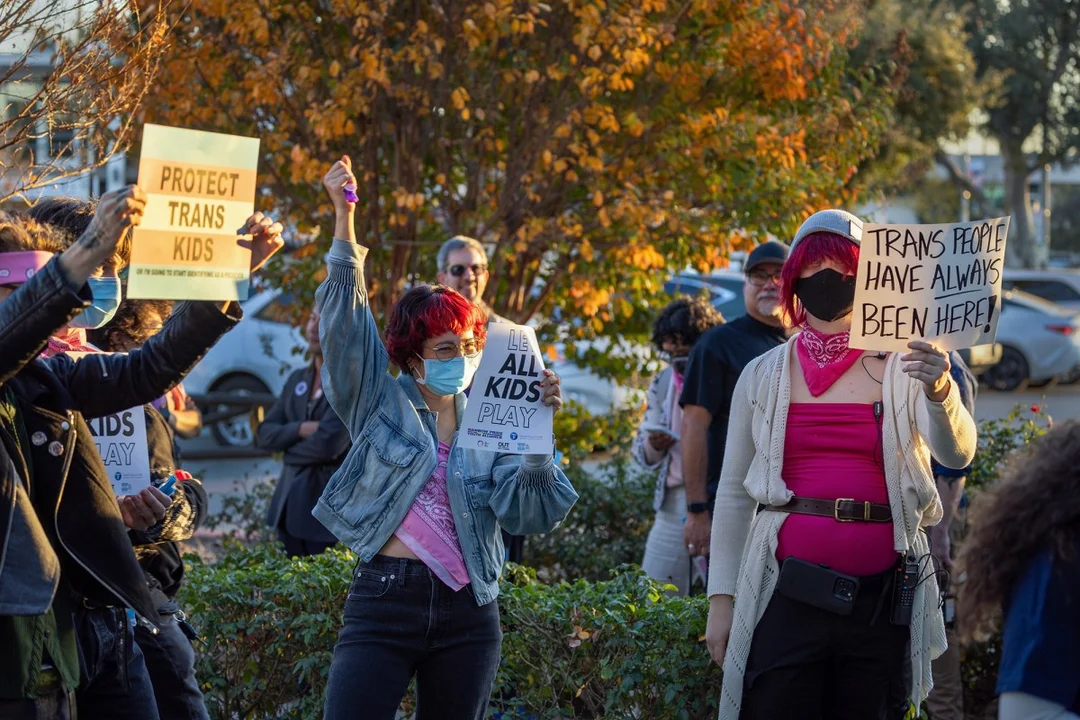
Is Fairness in Youth Sports Under Threat? A California Controversy Unfolds
In a heated clash of values, California school districts are grappling with policies on transgender athletes, sparking widespread debate over fairness, safety, and civil rights. As parents, students, and officials weigh in, this issue highlights the tension between state laws and federal pressures, raising questions about the future of inclusive education.
At the center of the storm is the Redlands Unified School District, where board members recently approved a resolution aimed at "ensuring fairness, safety, and equal opportunities for all student-athletes." Though it doesn't explicitly target transgender students, the language emphasizes biological differences, potentially undermining California's 2013 law that protects transgender students' rights to participate in sports aligned with their gender identity. Board member Candy Olson defended the vote, stating, "You would have to be an absolute science denier to say that the boys and the girls are of equal strength and of equal speed." This move echoes a growing national trend, influenced by President Donald Trump's executive order banning transgender women from women's sports, creating a rift between state protections and federal policy.

Meanwhile, in San Luis Obispo County, parents launched a "Protect our Kids" boycott, urging families to keep students home in protest of local schools' transgender policies. Atascadero Unified School District Trustee Rebekah Konzek explained the initiative stems from concerns about safety in private spaces like locker rooms. Student activist Selby Price countered this, calling it a "hateful agenda" that disrupts education. The boycott plans to continue monthly until schools align with federal standards, but officials clarify that California's education code mandates inclusion based on gender identity, rendering such actions largely symbolic.
The controversy intensified with a poignant speech by high school athlete Celeste Diest at a Lucia Mar Unified School District meeting. Diest shared a "traumatizing" experience of a transgender student in the girls' locker room, tearfully pleading for policy changes. School board president Colleen Martin's curt response—asking her to "wrap it up"—ignited outrage online, amplifying the issue nationally. Shannon Kessler, founder of Save Girls Sports Central Coast, argued this incident underscores California's progressive rules clashing with the Trump administration's hardline stance, potentially leading to lawsuits like the one filed against Maine.
Experts warn of the broader implications. Kel O'Hara from Equal Rights Advocates highlighted how such resolutions harm transgender students' mental health and academic outcomes, often framing the debate as an exaggeration of competitive advantages while ignoring real issues like unequal funding for girls' teams. Assemblymember Corey Jackson criticized these decisions as politically motivated, not rooted in community dialogue. With public opinion divided and even Governor Gavin Newsom calling transgender participation "deeply unfair," California finds itself at a crossroads.
As these events unfold, the core question remains: How can schools balance athletic fairness with inclusive rights? This ongoing battle not only affects young athletes but also reflects larger cultural shifts. What are your thoughts on this divisive issue? Share your views in the comments and help spread the conversation.